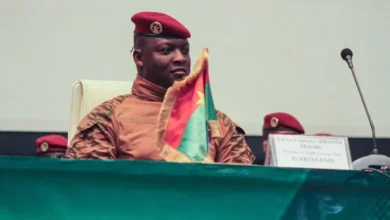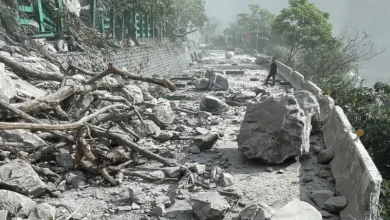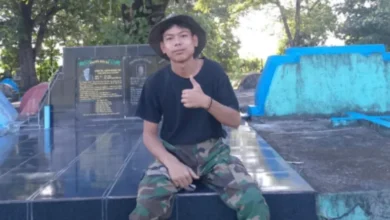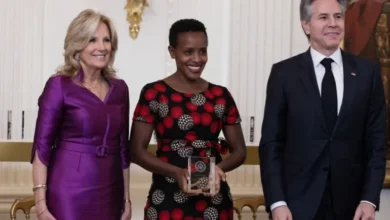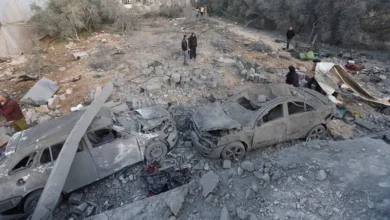Biden apologises for ‘sin’ of Indigenous boarding school abuses
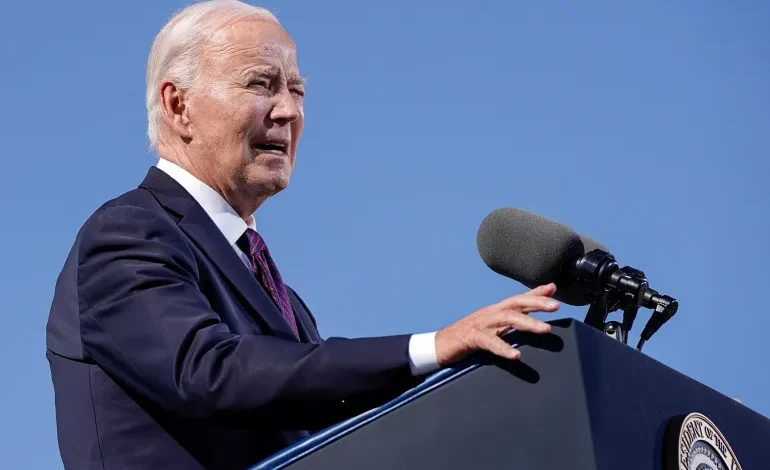
United States President Joe Biden has issued a formal apology to Native Americans for the government’s role in separating Indigenous children from their parents and forcing them into abusive boarding schools.
Biden gave the apology, long-sought by Tribal nations, on Friday during his first-ever visit to Native country, calling the boarding school abuses a “blot on American history”.
Speaking at the Gila River Indian Community’s land on the outskirts of Phoenix, Arizona, Biden called the abuses; “a sin on our soul”.
He added, “Quite frankly, there’s no excuse that this apology took 50 years to make … Today, we’re finally moving forward into the light.”
‘Profound’ moment
Between 1869 and the 1960s, more than 18,000 Indigenous children — some as young as four — were forcibly taken from their families and put into the boarding school system.The schools, often run by Christian churches, were part of the forced assimilation policy launched by Congress in 1819 as an effort to “civilise” Native Americans, Native Alaskans and Native Hawaiian peoples.The schools, often run by Christian churches, were part of the forced assimilation policy launched by Congress in 1819 as an effort to “civilise” Native Americans, Native Alaskans and Native Hawaiian peoples.The schools, often run by Christian churches, were part of the forced assimilation policy launched by Congress in 1819 as an effort to “civilise” Native Americans, Native Alaskans and Native Hawaiian peoples.
Biden’s Interior Secretary Deb Haalan, the first Native American in Cabinet, highlighted the resilience of her community’s “languages, our traditions, our life ways”.
Despite “everything that has happened, we are still here”, said Haalan, who joined Biden at the event.
Turning out the vote
Democrats hope Biden’s apology and visit to Native land in Arizona will provide a boost to Vice President Kamala Harris’s turnout effort in a key battleground state he carried by just 10,000 votes in 2020.
“There’s the political element to this as well, insofar as Arizona is an important swing state: It has 11 electoral votes, there are tens of thousands of Indigenous voters here,” said Reynolds.
During the visit, Biden highlighted his administration’s policies aimed at providing jobs and better infrastructure to Indigenous communities. His administration has directed nearly $46bn in federal spending to tribal nations, helping to provide access to electricity and high-speed internet, improve water sanitation and build roadways.
As the 2024 election closes in, Democrats have stepped up outreach to Native Americans, who traditionally favour the party but have turned out at lower rates than other groups.
Both Harris and her running mate, Minnesota Governor Tim Walz met tribal leaders in Arizona and Nevada this month. And former President Bill Clinton, who has been serving as a surrogate for Harris, last week met in North Carolina with the chairman of the Lumbee Tribe.
The Democratic National Committee recently launched a six-figure advertisement campaign targeting Native American voters in Arizona, North Carolina, Montana and Alaska through digital, print and radio advertisements.
At a recent campaign rally in Chandler, Arizona, near the Gila River reservation, Harris gave a nod to the tribe’s leader and highlighted the importance of “tribal sovereignty”.
“I strongly believe that the relationship between tribal nations and the United States is sacred … and that we must honour tribal sovereignty, embrace our trust in treaty obligations, and ensure tribal self-determination,” Harris said.
Thom Reilly, co-director of the Center for an Independent and Sustainable Democracy at Arizona State University, said both Harris’s and Trump’s campaigns — and their allies — have put a remarkable amount of effort into micro-targeting in Arizona.

